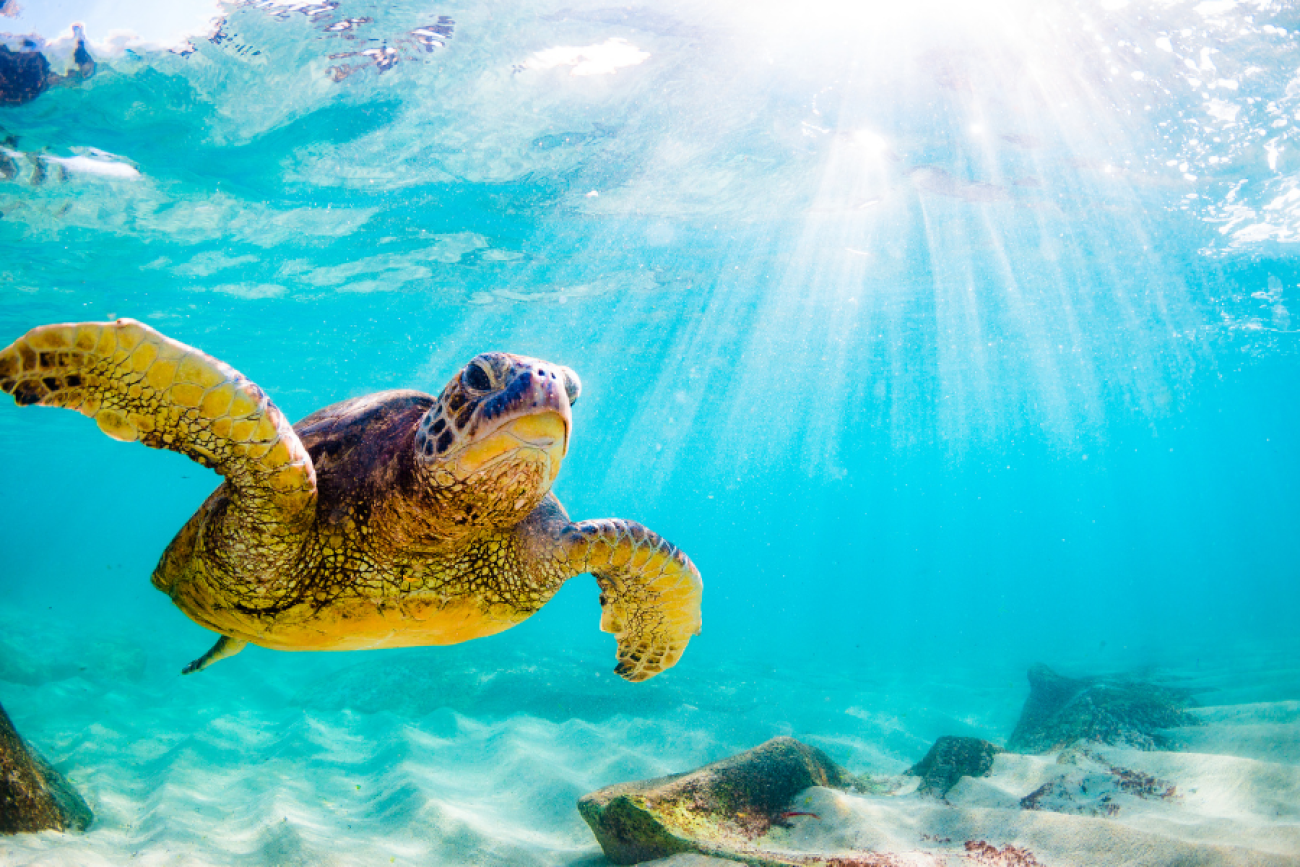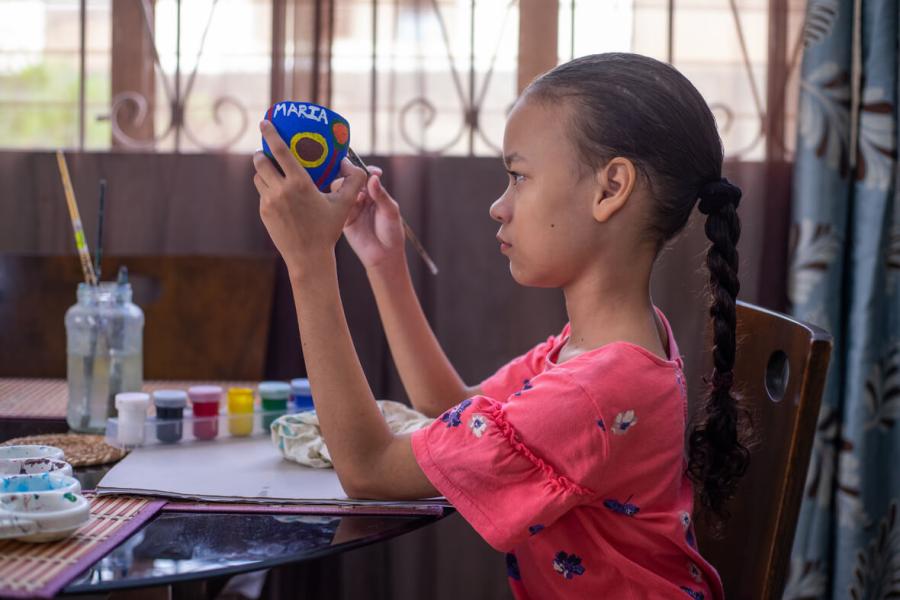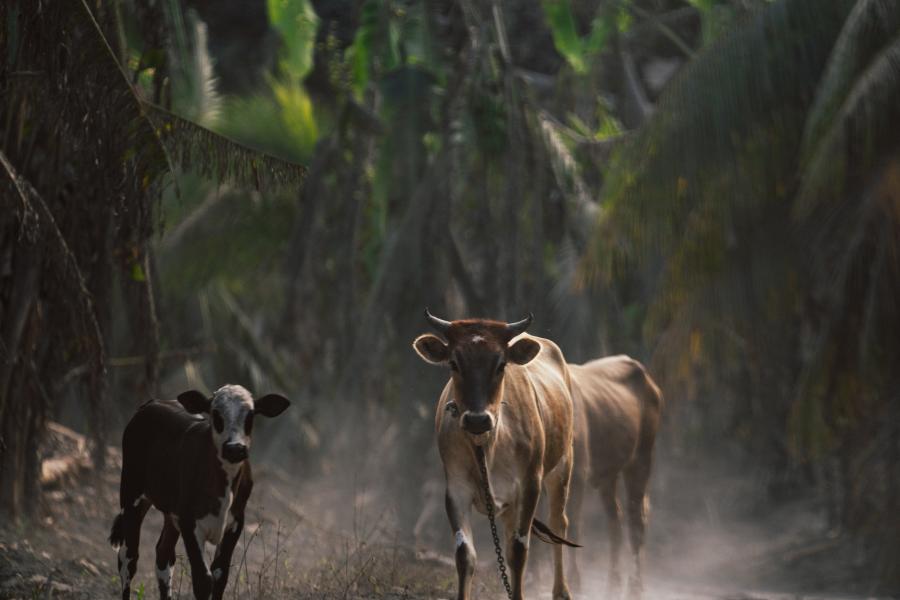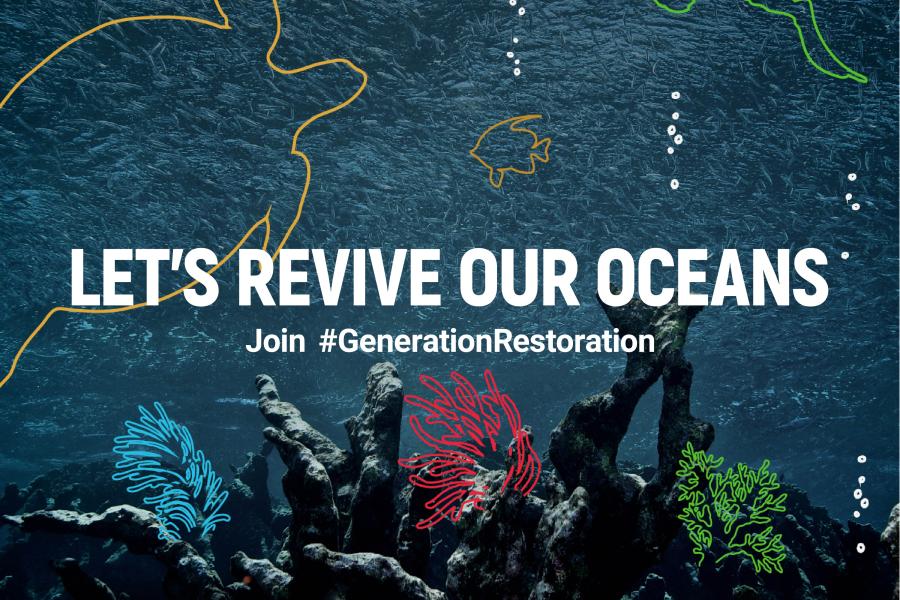9 Ways the UN is contributing to a more Climate Resilient and Environmentally Sustainable Caribbean.

By Rhe-Ann Prescod and Carol A. Gaskin
“We can no longer delay- so our children can inherit the planet we cherish today”
- Didier Trebucq, Resident Coordinator, UN Barbados and the Eastern Caribbean
As a region prone to natural disasters including hurricanes and flooding, Caribbean ecosystems are rapidly being transformed with adverse impacts to life on land and below sea. This can have serious repercussions for future generations.
Healthy ecosystems are the heart of all civilization they regulate climate, purify the air, and enhance mental and physical well-being. Ecosystem restoration is vital to achieving the Sustainable Development Goals and failure to reverse ongoing degradation, being exacerbated by climate change, can be costly to both people and planet.
There is much at stake.
Latin America and the Caribbean is the second region in the world, after Antarctica, with the largest percentage of protected areas, and it boasts seven of the world’s most biodiverse countries. Moreso, the Caribbean is home to 12% of the world’s mangroves and 10% of the world’s coral reefs, with 90% endemic to the Caribbean.
Today, as we celebrate World Environment Day under the theme “RESTORE. REBUILD. RECREATE”, UN Barbados and the Eastern Caribbean is encouraging you to play your part in protecting our vital ecosystem by living sustainably.
Here are nine ways that our Sub-Regional Team is helping to create a more climate resilient and environmentally sustainable Caribbean.
- Balancing People and Planet
Our interaction with the planet as human beings , is directly related to our ability to respond negatively or positively to changing climate. UNDP is a key player in the region supporting SIDS to better adapt and build resilience to the impacts of climate change both at the level of country and citizens. To this end, UNDP is working with governments and partners to implement projects that are not only focused on national priorities, but that will directly have an impact on the livelihoods of people. Climate Change is being felt and will continue to be felt by the most vulnerable in our population. On the home front, UNDP is also working on actively reducing its carbon footprint by exploring the possible installation of solar panels on facilities.
- Empowering Caribbean Youth
UNICEF is empowering Caribbean youth and providing national , regional and international platforms to allow their voices to be heard. Some of the Agency’s notable collaborations include partnering with 12-year old Maria Marshall, a UNICEF regional Change Maker on the environment, and supporting the youth-led Stay Alive and Thrive Climate Action campaign under the aegis of the Caribbean Youth Environment Network (CYEN). UNICEF is also supporting Governments to meaningfully engage children and young people in the design of their climate policies by inviting young people to get involved. One successful example of this approach is the Climate Change in Saint Lucia: Let’s Make It Your D.R.A.M.A. animated video produced in collaboration with the Department of Sustainable Development.

- Conserving Natural Resources and protecting ecosystems
In the face of climate change, biodiversity loss, and environmental pollution, UNESCO is utilising Natural Sciences programmes to address environmental sustainability and promote coordinated climate action in the Caribbean Small Island Developing States. For instance, through the Man and the Biosphere (MAB) programme, natural and social sciences, economics, and education are combined to improve livelihoods and protect natural and managed ecosystems.
At the heart of the MAB programme are biosphere reserves, which are extraordinary places that can include a wide variety of terrestrial, marine, and coastal ecosystems where human activities are balanced with the conservation and sustainable use of biodiversity. These "learning sites for sustainable development" are key to UNESCO's work to promote innovative sustainable development practices.
Currently, 714 biosphere reserves in 129 countries are part of the World Network of Biosphere Reserves. In the English- and Dutch-speaking Caribbean SIDS, there are two Biosphere Reserves: Saint Mary, in St. Kitts and Nevis, designated by UNESCO in 2011; and North-East Tobago, in Trinidad and Tobago, designated in 2020. Learn more here: https://en.unesco.org/mab/50years

- Preparing Caribbean Countries for Climate Risk and Disaster Shocks
Caribbean Small Island Developing States share common challenges in their pursuit of sustainable development. Natural hazards inclusive of earthquakes, droughts, floods, volcanic eruptions, hurricanes, and landslides, adversely impact the region, with an anticipated increase in climate-influenced disasters. Several UN Agencies, Funds and Programmes work collaboratively to support regional Governments in this critical area.
In collaboration with CDEMA and national Governments, WFP Caribbean strengthens countries’ preparation and response to climate shocks, placing the needs of vulnerable people at the centre of climate resilience efforts. Emphasis is placed on enhancing supply chain management in emergencies, conducting vulnerability analysis, and mapping, and strengthening the use of social protection systems in times of crisis.
OCHA Latin America and the Caribbean also support country preparedness by helping to update baseline data and contingency plans, to reflect the new threats and vulnerabilities caused by the COVID-19 pandemic and other emergencies.
ITU also contributes to the Caribbean’s Resilience by developing National Emergency Telecommunication plans and installing emergency telecommunications network (WINLINK). Capacity building workshops and table to simulation exercises on the use of ICTs in disaster management are also provided.
- Minimizing the impacts of climate related disasters on women and girls
With the prevalence of female-headed households in the Caribbean, many women serve as bread winners and play instrumental roles in ensuring food security and enhancing the well-being of their families. In this regard, the impacts of climate change and natural hazards can threaten their livelihoods and opportunities for growth. The UN Women Multi-Country Office – Caribbean continues to work to strengthen disaster and climate change resilience among women and girls. One way this is being done is through the EnGenDER Project, which is being implemented in 9 Caribbean countries. EnGenDER promotes gender-equality that aims to overcome traditional barriers to women’s needs in disaster preparation, response, and recovery
- Building a more climate resilient agriculture sector
With food security as its bedrock, FAO partners with Governments and representatives of the agricultural and fisheries sectors to enhance climate resilience. In the area of farming, the Organisation is supporting farmers in growing crops that are more resistant to climate hazards such as hurricanes, floods, and droughts. Support is also being provided to fishers to ensure adoption of safer practices at sea before and during bad weather events. Through partnerships and capacity building provided to regional Ministries of Agriculture, Extension Officers are also better equipped to effectively guide farmers and fishers on more efficient management of disaster risks.
FAO is also providing support at the level of Agricultural policy, working with Agricultural Ministries to support development of plans and strategies, with priority activities ,to increase climate resilience within the sector . Some of these initiatives have already rolled out in countries across the region, with remaining countries expected to start in coming months.

- Advancing Jobs that preserve and restore the environment
The ILO Office for the Caribbean partners with governments, employers, trade unions, other stakeholders, and UN agencies, to achieve climate resilience through the development of policies that advance the greening of jobs, skills development, and business practices.
These interventions are driven by respect for the environment, in keeping with ILO’s Decent work Agenda and Recommendation No. 205 on “Employment and Decent Work for Peace and Resilience.”
In addition to ongoing trainings and stakeholder social dialogues, recent regional interventions included the 2020-2021 Caribbean Resilience Project and the Recovery to Resilience Virtual Symposium Forum.
- Promoting the safe disposal of ICT equipment
ITU works with governments and regulators to provide relevant and up-to-date policies on electronic waste (e-waste) management. These include anti-dumping regulations, development of E-waste policy tool kits and capacity building workshops.

- Encouraging Partnership to meet the environmental needs of the Caribbean
To place nations on the path to improving their quality of life without compromising that of future generations, UNEP works with governments and stakeholders in the Caribbean to preserve and protect the environment, while achieving the Sustainable Development Goals.
With over 50 technical assistance projects implemented in over 23 Caribbean countries, territories and dependencies, the UNEP Caribbean Sub-Regional Office is a catalyst and advocate for sustainable development and adequately addressing the region’s unique environmental needs.
This World Environment Day, UNEP in collaboration with the FAO is pleased to launch the UN Decade on Ecosystem Restoration, a global call to action to scale up restoration efforts , reverse the harm done to our ecosystems, and heal our planet.
Ecosystem restoration is essential to the fight against poverty and hunger and to realisation of the Sustainable Development Goals. You too can join this call to action. What will you restore?
Join #GenerationRestoration.



